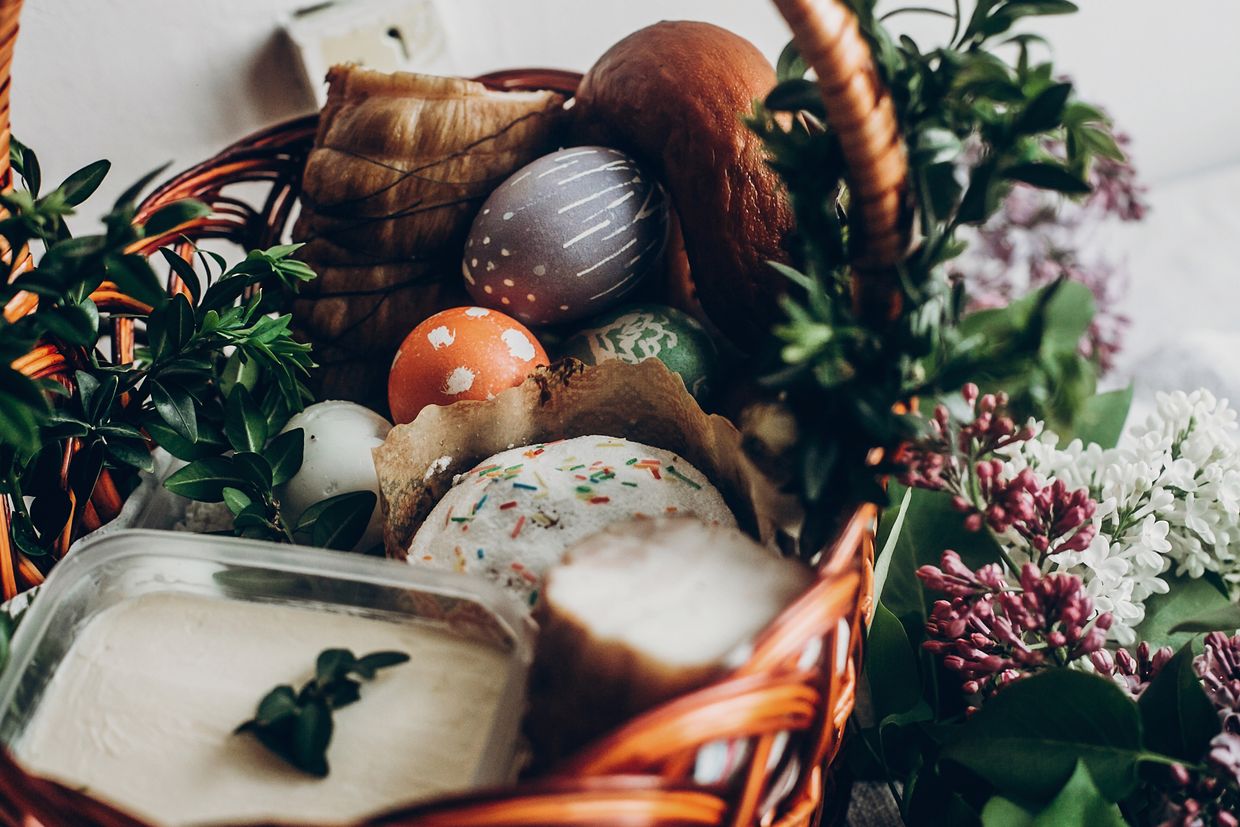**Ukrainian Easter Traditions: A Celebration of Faith and Culture**
In Ukraine, the Orthodox Church celebrates Easter as Velykden, or “Great Day”. This year’s celebration takes place on Sunday, April 20. As we delve into the week-long preparations for this significant holiday, it becomes clear that Ukrainian Easter traditions are steeped in symbolism, faith, and rich cultural heritage.
At the heart of these celebrations lies the Easter basket, known as sviachene, which is blessed by a priest before families return home from mass to start their feast. Unlike its Western counterpart, the Ukrainian Easter basket is filled with symbolic foods that Ukrainians abstain from during the 40 days of Lenten fasting.
**Six Essential Elements of a Ukrainian Easter Basket**
Here are six must-have items in an authentic Ukrainian Easter basket:
1. **Paska (Easter Bread)**: A labor-intensive bread made from milk, butter, eggs, flour, yeast, and sugar. The dough is allowed to rise three times before baking.
2. **Pysanky (Decorated Eggs)**: Hard-boiled eggs dyed a single color or intricately decorated with complex patterns using a wax-resist method.
3. **Dairy**: Rich foods like butter, cheese, and egg-filled pancakes are included in the basket to celebrate the end of Lenten fasting.
4. **Cured Meats**: Ham, smoked sausages, and salo (cold, white pork fat) represent joy, abundance, generosity, and mercy respectively.
5. **Horseradish Relish**: A strong, biting condiment that reminds Ukrainians of Christ’s suffering before the Resurrection on Easter day.
6. **Salt**: A symbol of prosperity, purification, and duty to others, with a deeper significance in the context of Ukraine’s ongoing conflict.
**Symbolism and Significance**
Each item in the Ukrainian Easter basket carries significant meaning:
* Paska represents the Risen Christ, while cured meats signify joy, abundance, generosity, and mercy.
* Dairy products highlight the importance of nourishment after a period of fasting.
* Horseradish relish serves as a reminder of Christ’s suffering, while salt symbolizes purification and duty to others.
**War and Resilience**
In light of Ukraine’s ongoing conflict, the Easter basket takes on an added significance. The inclusion of foreign salt in many baskets reflects the challenges faced by Ukrainians during this difficult time. Despite these hardships, Ukrainian resilience shines through in their unwavering faith and commitment to their cultural traditions.
As we celebrate Easter with the people of Ukraine, we are reminded that even amidst turmoil, faith, family, and culture can provide comfort, strength, and hope for a brighter future.












